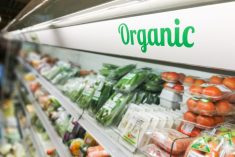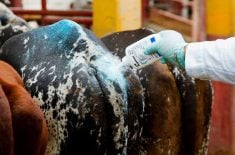Canadian farmers should know within the next few months how they will be affected by new seed treatment regulations that are set to take affect in 2017.
Russel Hurst, executive director with the Agrichemical Warehousing Standards Association (AWSA), said new rules that dictate how seed treatment products must be handled, stored and applied in Canada will take effect Jan. 1, 2017.
The rules, called Accredited Seed Treatment Operation Standards, were created by CropLife Canada to ensure the safe handling of chemical seed treatments and reduce environmental risks associated with the products.
Read Also

American agriculture groups call for full renewal of Canada-United States-Mexico trade deal
American food and agriculture groups are calling for a full 16-year renewal of the Canada-United States-Mexico-Agreement (CUSMA).
The rules include 76 protocols and best management practices that were adopted by Crop Life Canada members last summer.
The next step in the process is to determine which seed treatment products will be subject to the new safety protocols.
A preliminary list of products is due to be published later this year or early in 2015, said Hurst.
Farmers will be watching the list with interest
Only accredited seed treatment operators will be eligible to receive and apply products that are on the list.
Some farmers are concerned that popular seed treatment products that are commonly applied to seed in the farmyard or in the field at seeding time will be included on the restricted list.
But according to Hurst the standards are not intended to restrict on-farm applications.
“Basically, from a farmer perspective, we’re not anticipating these standards having any impact at the grower level,” Hurst said.
“What these standards are focused on are the commercial seed treating businesses … so commercial seed growers, seed companies, ag retailers and so on.”
“Our intention is not to have these standards go down to the on-farm level for a grower that is treating his own seed for his own purposes.”
Husrt said the impact on pedigreed seed growers could be more immediate.
“We really don’t envision this affecting Joe Farmer,” he said.
“That said, if Joe Farmer is a seed grower as well as a farmer, it will affect him in one way or another.”
Depending on the product, seed growers might be restricted for treating pedigreed seed supplies that are intended for sale to commercial grain growers.
Seed growers would have the option of having their pedigreed seed treated by an accredited custom operator, or seeking certification themselves as an accredited seed treatment operator, Hurst said.















